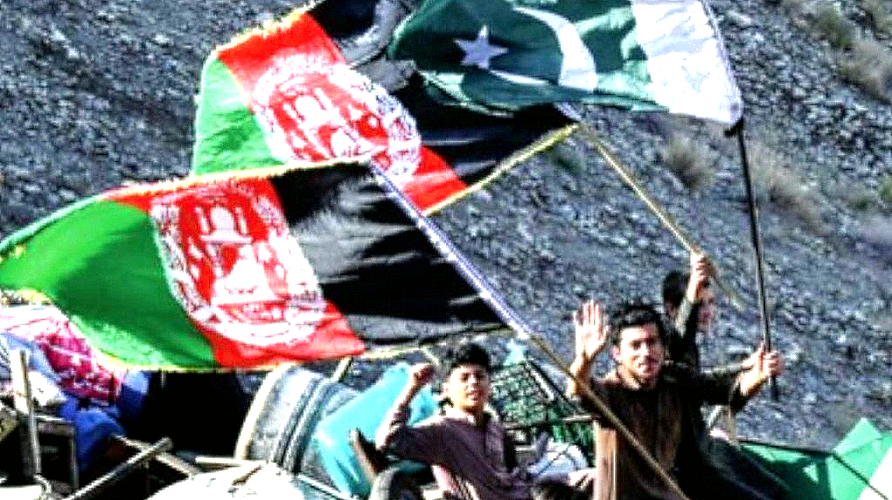
Pakistan and Afghanistan have always had a complex relationship that has been mishandled by both sides.
Each has expected the other to make up for the failure of its own policies, has sought solutions that were worse than the problem, and has become friendly with the other’s enemies.
Pakistan needs a sound strategy to deal with a relationship that is critical to the two countries’ security, economic future and political stability.
Pakistan and Afghanistan have a shared but contentious history, overlapping identities, a disputed border, divided ethnicity and bifurcated tribes.
These ingredients provided each with an opportunity to interfere in the other’s affairs, as well as incentives for ambitious policies.
The two had also become dependent on external powers, subordinate to the latter’s security and strategic interests and victims of their wars. All this negatively impacted their domestic dynamics.
It puzzles Pakistanis that the Afghans are not grateful for all that they did for them.
True, Afghanistan was liberated from Soviet occupation, and later, according to a former prime minister, it broke “the chains of slavery” that had tied it to another superpower.
But what did the Afghans get on being “liberated,” a process in which Pakistan helped not once but twice?
The Taliban. The Taliban are no liberators except through a lens distorted by narrow nationalism, religious extremism, anti-Americanism and political opportunism.
The reality is that under Taliban rule, the Afghans are undergoing prison-like restrictions. The treatment of women alone is a crime against humanity.
Contrary to what some Pakistanis think, the Afghan Taliban’s fight was not for the Afghans, but for their own power and ideology that arose not from a conflict among the Afghans, but between Afghans and the Taliban.
It is true the Taliban had a following among the rural poor, especially in Pakhtun areas–similar to how extremist religious elements appeal to many among Pakistan’s low-income groups.
But would Pakistan’s educated population aspiring to democracy and progress like them to come to power? So why would Afghanistan’s educated favor the Taliban? Do they deserve or aspire to anything less?
For most Afghans, it was important that in the 20 years before the Taliban’s return, education and healthcare facilities had expanded, women’s rights, including work opportunities, had improved, and citizens had experienced political freedoms.
Yes, the elite were corrupt and primarily responsible for Afghanistan’s failure. But the Taliban were not the substitute. Nor can they be termed an entirely Afghan phenomenon.
Only by acknowledging this and owning its share of the responsibility can Pakistan understand the true ramifications of the Taliban challenge.
The UN Security Council’s Analytical Support and Sanctions Monitoring Team has named several groups that helped the Taliban’s fight. Now again, they enjoy their protection in Afghanistan, as they did before 2001.
The nexus among the Taliban and these “brothers in faith” that include the TTP and other Pakistani militant groups lies at the heart of the terrorist threats Pakistan faces.
Pakistan cannot bank on the Taliban to act against them as this could cause their own disintegration. They are already fighting groups opposed to them including the National Resistance Front and transnational terrorist groups like the Islamic State-Khorasan.
Any military action or economic pressure by Pakistan will cause further instability in Afghanistan.
The Taliban might be able to control Afghanistan but not dominate, much less stabilize, it.
Given its fault lines, competitive geopolitics and regional politics, and its conflict-prone internal make-up, Afghanistan can’t be stable without a dedicated effort by Afghans and the global community.
That won’t happen under the Taliban. Even China’s economic role would remain small.
What are the options? Pakistan can’t stabilize Afghanistan; only the Afghans can. But Pakistan must work with regional countries to avoid instability there.
The Moscow Format Consultation is a good initiative. More important, though, are the steps Pakistan takes at home. It must launch an earnest campaign to curb the expanding influence of extremist groups.
If Islamabad eventually weakens them, it would have undermined their ties with the Taliban and Afghanistan’s potential to harm Pakistan.
The Taliban’s Afghanistan won’t bring us economic or strategic benefits. A grand design, thus, is neither needed nor workable.
Pakistan’s only realistic aim, for now, should be a narrowly focused working relationship that avoids extreme measures, helps but not strengthens the Taliban, and promotes human rights especially women’s rights, i.e., a short-term plan with a long-term view.
ADVERTISEMENT
ADVERTISEMENT








































